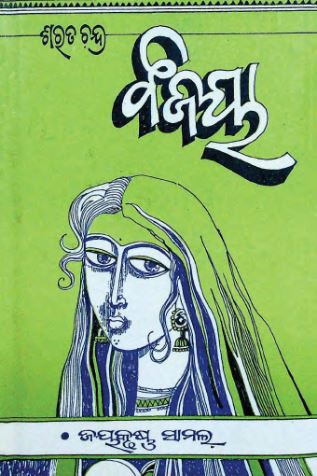Odia Drama Book Bijaya by S. C. Chattopadhyay, translated by J. Samal and published in 2000, is an impressive work that stands as a significant contribution to the realm of Odia literature and dramatic arts. This drama, categorized as a sub-drama within the distinctive tradition of Odia theatre, encapsulates the rich cultural and societal narratives that have long been a part of the region’s literary heritage. It is published under the aegis of Datta, indicating the work’s deep connection with traditional and progressive elements of Odia storytelling.
At its heart, “Bijaya” is a celebration of human resilience and the eternal quest for triumph over adversities. The themes explored within the drama are universal yet are rendered in a manner that is distinctly local, drawing on the cultural nuances and historical experiences of the Odia people. The narrative is both introspective and outward-looking, examining the complexities of personal ambition and collective identity. Through its intricate plot and multidimensional characters, the drama probes the interplay of fate, destiny, and free will, urging the audience to reflect on the essence of victory—not just in the external world but also within the human spirit.
One of the most remarkable aspects of “Bijaya” is its rich portrayal of characters who resonate with authenticity. Chattopadhyay creates individuals who are not mere caricatures of their time but rather dynamic figures with internal struggles, aspirations, and moral dilemmas. Their journeys unfold against a backdrop of societal transformation, where the old ways of tradition are intermingled with the seeds of modern thought. This tension between tradition and change is a recurring motif and is handled with a delicate balance that gives the drama an enduring appeal. Each character, whether a protagonist or a supporting figure, is presented with a nuanced perspective that allows the audience to empathize with their dilemmas and celebrate their victories.
The language of “Bijaya” is another standout feature. The translation work by J. Samal plays a pivotal role in bringing the original expressions of S. C. Chattopadhyay to a wider readership. Samal’s translation retains the lyrical quality and rhythmic cadence of the original Odia text while ensuring that it remains accessible to contemporary audiences. The dramatic dialogues and monologues are imbued with poetic grace and philosophical subtleties, inviting readers and theatre-goers alike to pause and reflect on the layered meanings embedded within the text.
Structurally, the drama is articulated in scenes that flow like a well-rehearsed performance on stage. The pacing is deliberate, creating spaces for both introspection and dramatic exposition. Each act builds upon the previous one, gradually unveiling the intricate relationships and power dynamics among the characters. This methodical progression not only enhances the dramatic tension but also reinforces the central theme that victory—be it personal, emotional, or societal—is achieved through perseverance, self-refinement, and a deep engagement with the forces shaping human destiny.
In summary, Odia Drama Book Bijaya is a masterful blend of traditional narrative artistry and modern theatrical sensibilities. It offers a rich tapestry of themes, characters, and language that engages the reader on multiple levels. S. C. Chattopadhyay’s original vision, complemented by J. Samal’s thoughtful translation, ensures that the drama occupies an esteemed place in contemporary Odia literature, continuing to inspire reflection, dialogue, and appreciation for the enduring spirit of victory that lies at the core of human existence.
Books Info
| Books name | Bijaya |
| Author | SC Chattopadhyay; J Samal, Tr. |
| No Of pages | 161 |
| Publisher | Vani Vikash |
| Publication | 2000 |
| Printed At | Optima |
| Distributor | NA |

